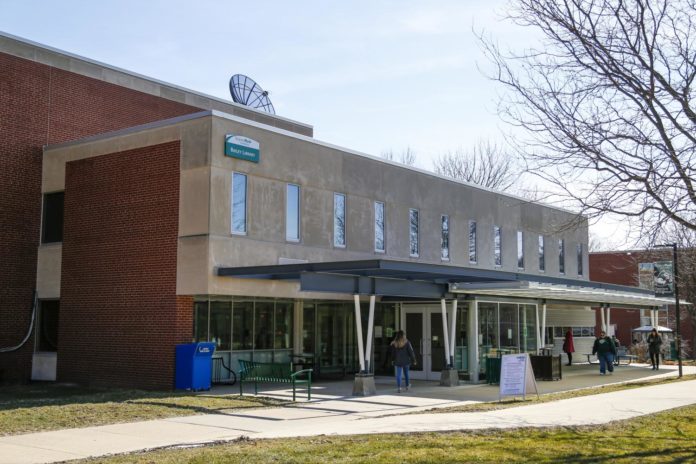According to the College Board, the average college student spent about $1,240 on textbooks and supplies this academic year. For students who cannot afford these expenses, the Office for Transformational Experiences is promoting Open Educational Resources (OERs) and educating faculty on their uses.
OERs are learning materials, such as textbooks, lab manuals or even YouTube videos, available for free online. The materials are available through the Creative Commons and under “open access” copyright restrictions. Because of this, faculty members can even modify some OERs to fit the needs of their own classes.
“There’s a financial component to higher education right now, so the open education movement looks to try and reduce that burden,” Rocco Cremonese, business user experience and outreach librarian, said.
According to Cremonese and Brad Wilson, associate provost for transformational experiences, the majority of OERs are suited for introductory courses, but fewer OERs are available for more specialized, higher-level courses.
“This isn’t going to be a solution for every class and for every student and for every professor,” Wilson said.
Since last semester with the first announcement of OERS, the initiative now has three goals: partner with Top Hat, sponsor professional development grants and educate faculty. Top Hat is a digital platform that will allow faculty to edit and customize OERs. This agreement is free to SRU, according to Wilson.
“They provide a way that faculty can edit and add things and delete things and put in quizzes so they can create something more customized to their class,” Wilson said.
In professional development, the Office for Transformational Experiences is looking to sponsor grants for faculty members to attend conferences about OERs. According to Wilson, these grants would be between $300-$500.
“If there are faculty that are really thinking, ‘I would be interested in this,’ we want to provide support so that they can feel like they can take a little bit of time to explore what textbooks are available for their subjects, look at them and see if they are appropriate,” Wilson said. “If they decide to adopt, we’ll help them integrate those into their courses.”
As part of the education aspect of the initiative, Cremonese will host a workshop for faculty on March 21 at Carruth Rizza Hall room 211 from 1-3 p.m.
OERs are currently available through SRU’s LibGuides, although the Top Hat tab is inactive as of press time. There will also be a faculty learning community focused on OERs in fall 2019.
“It’s definitely a movement that seems to be here to stay, nationally and academically,” Cremonese said.








